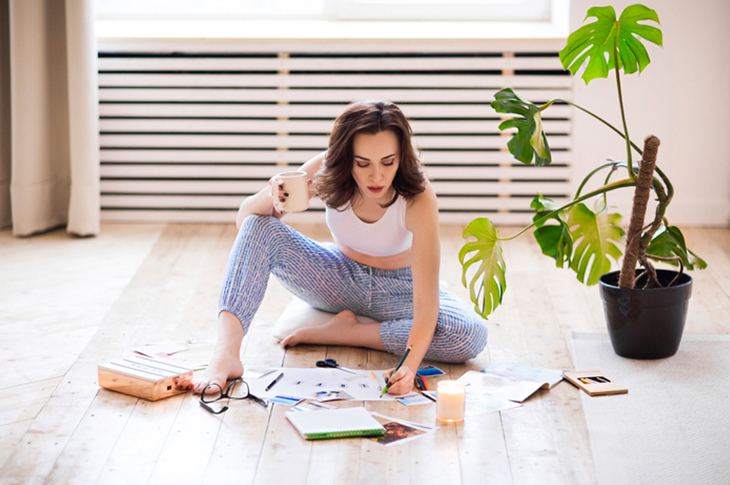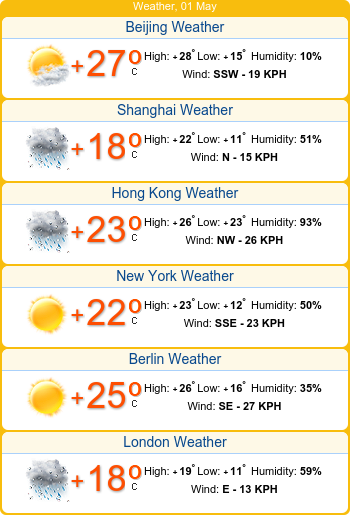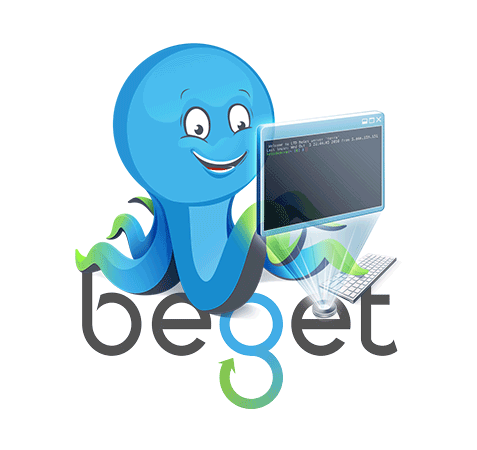Try a Mood Board for Your Fitness and Wellness Resolutions This Year
The New Year is one of the best times of the year to set fitness and wellness resolutions. And one of the best ways to ensure you keep those fitness and wellness resolutions all year long? A mood board. Mood boards can be a great source of inspiration for making healthier decisions and moving towards your fitness and wellness goals. But what, exactly, is a mood board, how do they work, and how can you use mood boards to become the happiest, healthiest version of yourself in 2023 (and beyond)? Sometimes called a vision board, a mood board is a collection of images, graphics, words, and other visual imagery collaged together. They essentially create a visual representation of a chosen topic, idea, concept, or goal. You can make a physical mood board (for example, by cutting out images from a magazine and collaging them on a piece of posterboard)—or, if you prefer the more tech-savvy route, you can create a virtual mood board using a digital design tool. What can you use a mood board for? Mood boards are extremely versatile. You can make one on just about every topic and for just about any reason (including just because you want to!). But one of the most effective ways to use them? To help you hit your goals. For example, let’s say you just bought a new home. You might make a mood board full of interior design images to help guide your decorating process—including the colors, styles, textures, and patterns you want to include in your home design. Or let’s say you’re still renting—but your goal is to buy a home in the near future. In that situation, you could make a mood board to keep you moving towards your goal, complete with photos of your dream neighborhood, the kind of home you’d like to buy, and images that will inspire positive financial habits. Mood boards can be a helpful tool in working towards any goal. But as the New Year approaches, they can be especially effective in helping you work towards your New Year’s resolutions—including your health and fitness resolutions. So how, exactly, can you use mood boards to help you hit your health and fitness goals—and keep you moving towards your healthiest, happiest self straight through 2023? Make sure all of your health goals are represented—mental, physical, and emotional When setting health resolutions for the coming year, it can be easy to focus on the physical—things like changing your diet or getting more exercise. And while you’ll 100 percent want to include those goals on your mood board, your physical health goals aren’t the only resolutions you want represented on your mood board. You’ll want to include your mental and emotional health goals as well. Think about the resolutions you want to make to improve your overall health in 2023—physical, mental, and emotional. For example, maybe your health resolutions look something like this: Physical: Run a 10k, learn to cook healthy meals at home, improve sleep hygiene and get 8 full hours of sleep each night Mental: Create a daily self-care practice, learn an instrument, read one book per month Emotional: Start seeing a therapist, schedule at least one “friend date” each week All of those resolutions are going to help you become a healthier, happier person—and so you’ll want to include them on your mood board. Include images that inspire you Once you know all of the health resolutions you want to include on your mood board—physical, mental, and emotional—it’s time to start putting your mood board together. And the first step in that process? Gathering images to create your collage. There’s no “right” way to search for, find, and collect imagery for a mood board. If you’re making a physical mood board, you might clip images from books and magazines or incorporate your own photos—while if you’re making a digital mood board, you might search the internet and take screenshots of images that align with your goals. But however you conduct your image search, the most important thing to keep in mind? Choose images that inspire you. Look for inspiring images that align with the goals you’re trying to hit. For example, is one of your fitness goals to finish your first marathon? Look for photos of people triumphantly crossing marathon finish lines or epic scenery shots of the location where you’d like to run. Are you planning on embracing a more plant-based lifestyle in the coming year? Make sure to incorporate lots of pictures of delicious, nutritious foods and meals to inspire your plant-based menu. Bottom line? The purpose of your mood board is to act as a visual representation of your health and fitness resolutions—and to inspire you to keep working towards those resolutions, even when it gets challenging. So, to make sure your mood board inspires you when you need it most? Choose inspiring images. Put your mood board on display A mood board i

The New Year is one of the best times of the year to set fitness and wellness resolutions. And one of the best ways to ensure you keep those fitness and wellness resolutions all year long? A mood board.
Mood boards can be a great source of inspiration for making healthier decisions and moving towards your fitness and wellness goals. But what, exactly, is a mood board, how do they work, and how can you use mood boards to become the happiest, healthiest version of yourself in 2023 (and beyond)?
Sometimes called a vision board, a mood board is a collection of images, graphics, words, and other visual imagery collaged together. They essentially create a visual representation of a chosen topic, idea, concept, or goal.
You can make a physical mood board (for example, by cutting out images from a magazine and collaging them on a piece of posterboard)—or, if you prefer the more tech-savvy route, you can create a virtual mood board using a digital design tool.
What can you use a mood board for?
Mood boards are extremely versatile. You can make one on just about every topic and for just about any reason (including just because you want to!). But one of the most effective ways to use them? To help you hit your goals.
For example, let’s say you just bought a new home. You might make a mood board full of interior design images to help guide your decorating process—including the colors, styles, textures, and patterns you want to include in your home design.
Or let’s say you’re still renting—but your goal is to buy a home in the near future. In that situation, you could make a mood board to keep you moving towards your goal, complete with photos of your dream neighborhood, the kind of home you’d like to buy, and images that will inspire positive financial habits.
Mood boards can be a helpful tool in working towards any goal. But as the New Year approaches, they can be especially effective in helping you work towards your New Year’s resolutions—including your health and fitness resolutions.
So how, exactly, can you use mood boards to help you hit your health and fitness goals—and keep you moving towards your healthiest, happiest self straight through 2023?
Make sure all of your health goals are represented—mental, physical, and emotional
When setting health resolutions for the coming year, it can be easy to focus on the physical—things like changing your diet or getting more exercise. And while you’ll 100 percent want to include those goals on your mood board, your physical health goals aren’t the only resolutions you want represented on your mood board. You’ll want to include your mental and emotional health goals as well.
Think about the resolutions you want to make to improve your overall health in 2023—physical, mental, and emotional. For example, maybe your health resolutions look something like this:
- Physical: Run a 10k, learn to cook healthy meals at home, improve sleep hygiene and get 8 full hours of sleep each night
- Mental: Create a daily self-care practice, learn an instrument, read one book per month
- Emotional: Start seeing a therapist, schedule at least one “friend date” each week
All of those resolutions are going to help you become a healthier, happier person—and so you’ll want to include them on your mood board.
Include images that inspire you
Once you know all of the health resolutions you want to include on your mood board—physical, mental, and emotional—it’s time to start putting your mood board together. And the first step in that process? Gathering images to create your collage.
There’s no “right” way to search for, find, and collect imagery for a mood board. If you’re making a physical mood board, you might clip images from books and magazines or incorporate your own photos—while if you’re making a digital mood board, you might search the internet and take screenshots of images that align with your goals.
But however you conduct your image search, the most important thing to keep in mind? Choose images that inspire you.
Look for inspiring images that align with the goals you’re trying to hit. For example, is one of your fitness goals to finish your first marathon? Look for photos of people triumphantly crossing marathon finish lines or epic scenery shots of the location where you’d like to run. Are you planning on embracing a more plant-based lifestyle in the coming year? Make sure to incorporate lots of pictures of delicious, nutritious foods and meals to inspire your plant-based menu.
Bottom line? The purpose of your mood board is to act as a visual representation of your health and fitness resolutions—and to inspire you to keep working towards those resolutions, even when it gets challenging. So, to make sure your mood board inspires you when you need it most? Choose inspiring images.
Put your mood board on display
A mood board is a great reminder of the goals that you’re working towards and inspiration to help you work towards those goals. But it can only remind and inspire you if you can actually see it.
Display your mood board in a place where you’re sure to see it every day—for example, on your bedroom wall, on your dresser, or in your workout room. The more often you look at your mood board, the more visual reminders you’ll get of your fitness and wellness resolutions—and those reminders can help you stay accountable to hitting your goals and keeping your resolutions.
Add to your mood board as necessary
As the year progresses, your fitness and wellness resolutions may progress right along with it. So, if you want your mood board to continue to inspire you? Make sure to change and add to it as necessary.
For example, let’s say your major New Year’s health resolution is to get better sleep—and, as such, your mood board is focused on sleep-related imagery and inspiration. If you’re focused on that goal, chances are, your sleep is going to improve throughout the year—and by June, you may be getting such high-quality Zzz’s, improving your sleep no longer feels like as much of a focus.
In that situation, you may feel called to add new resolutions to your mood board, like getting more exercise or cooking more healthy meals—or you may be called to make a new mood board altogether!
The point is, in order for a mood board to be effective, it needs to be a reflection of your current fitness and wellness goals and resolutions—so don’t be afraid to change or add to your mood board as those goals and resolutions change.
This information is for educational purposes only and is not intended as a substitute for medical diagnosis or treatment. You should not use this information to diagnose or treat a health problem or condition. Always check with your doctor before changing your diet, altering your sleep habits, taking supplements, or starting a new fitness routine.












